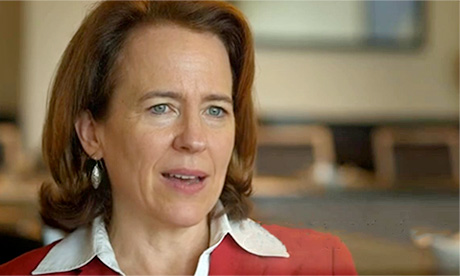“So much is at stake this week (in Rome) …I hope something important comes from it.”
This is what Anne Barrett Doyle, the co-director of BishopAccountability.org, said to reporters at the Foreign Press Association in Rome two days before the Vatican summit on the protection of minors in the church is scheduled to begin.
But if nothing substantial comes of the meeting, Ms. Barrett Doyle said it is her hope “the energy of change” can be assumed by secular forces “so that changes will come from the outside, through attorneys general, grand jury investigations and so on.”
“The Catholics of the world are grieving, disillusioned,” she said, because of “the sexual abuse of thousands of minors by clergy in past decades and bishops who covered up.”
“We all know,” she added, “that canon law has to be changed so that it stops protecting the priesthood of ordained men over the lives of children.
“I believe the church is no way close to enacting the reforms to end this epidemic,” she said, “which consists of two aspects: the sexual assault on minors by priests and the cover-up by bishops.”
BishopAccountability.org is one of the many advocacy groups for survivors of abuse by clergy that have descended on Rome this week from all over the world to highlight the problem ahead of the summit.
Ms. Barrett Doyle explained that in advance of the summit her organization had reviewed the church’s response to abuse in eight countries with the highest numbers of Catholics—Brazil, Mexico, the Philippines, the United States, Italy, France, Colombia and the Democratic Republic of the Congo, which together represent 50 percent of the world’s Catholics.
She said the review showed that Brazil, with 172 million Catholics, has not posted a policy for handling abuse allegations on its website.
“The crisis is invisible there,” she alleged, though her group had identified some 90 priest abusers in Brazil in 2012 and believes there are “thousands” of cases.
The church in Mexico, with the second largest Catholic population, claims to have dealt with only one abusive priest, while just four have been convicted of this crime.
But, she said, the president of the Mexican bishops’ conference described clergy sex abuse as “a bottomless well” and is seeking “unusual new faculties” from the Vatican to deal with the problem.
In the Philippines, the third most Catholic country in the world, the church has had “a lax policy” since 2003 (though it has been removed from the website) and “no priest has been convicted of child sex crimes.”
Ms. Barrett Doyle said the church the Philippines “lets offenders return to the ministry” and “bishops don’t report priests” because they “have a relation that is analogous to father-son with them.”
She charged that the Philippines’ church also tolerates “priest fathers” on “a one-child quota system.”
BishopAccountability.org found that globally eight bishops conferences—Brazil, Congo, Peru, Venezuela, Nigeria, India, Ecuador and Uganda—have not published guidelines on how to respond to child abuse and that only one of 20 nations in the world with the highest number of Catholics has a zero-tolerance policy—the United States.
The importance of this summit of the presidents of the world’s 114 bishops’ conferences and of the Eastern-rite churches, which Pope Francis has convened, was underlined by the BishopAccountability.org survey.
Pope Francis has said that he wants all of the church’s national conferences to be “on the same page” in terms of the response to the abuse problem.
Ms. Barrett Doyle added that Pope Francis is “the first pope to have said that bishops have to be held accountable” and “the first pope to have said that there has to be an end to cover-up.” Continue reading
- Image: Vimeo
News category: Analysis and Comment.




